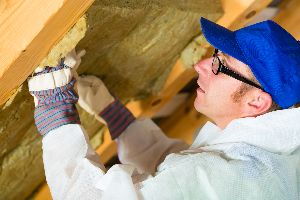A Guide to Boosting Efficiency With Home Insulation
Details
Efficient homes use less energy on cooling and heating the space, which can conserve resources and save monthly on utilities. Insulation may play an important role in the efficiency of your property. Below, you'll learn more about this material and how insulation contractors recommend using it.
What is Insulation?

Insulation, often made from fiberglass, mineral wool, or cellulose, is a material that provides homes with protection against the elements. More specifically, it slows conductive heat flow, which can keep heat from escaping during winter and block out warm air during summer. Generally, thicker insulation with a higher R-value more effectively prevents heat transfer. Additionally, insulation may offer a barrier against humidity to keep indoor areas dry.
How It Enhances Efficiency
Since insulation prevents heat transfer, it can regulate indoor temperatures. This may prevent your HVAC system from overworking and using excess energy to maintain thermostat settings. As a result, you’ll likely notice lower monthly utility expenses not long after installing new insulation. This can also take stress off your heating and cooling unit, preventing breakdowns and the need for a premature replacement.
Insulation blocks outdoor air from entering, making common pollutants such as smoke, pollen, and dust mites less likely to get inside your residence. As your HVAC systems pulls in air, its filter might not become clogged as quickly, since insulation often improves indoor air quality. This may prevent your system from consuming extra power while struggling to pull intake air through a saturated filter, which can conserve energy and lead to utility savings.
Places to Install It
Attic insulation may prevent heat from transfer through fissures and weaknesses in roofing materials. It can provide thorough coverage on the underside of the roof to protect your home against the elements and enhance efficiency.
Heat may also more readily absorb through hollow or inadequately insulated exterior walls. Adding fiberglass, cellulose, or mineral wool to these spaces can create an airtight barrier that regulates indoor temperatures and conserves energy.
Basements also require insulation. These spaces often become cold and damp, causing your HVAC system to overwork to keep them comfortable. An insulation contractor can install insulating materials on basement walls and ceilings to keep the area warm and dry, which may save energy.
Find Your Location


Get a quote


